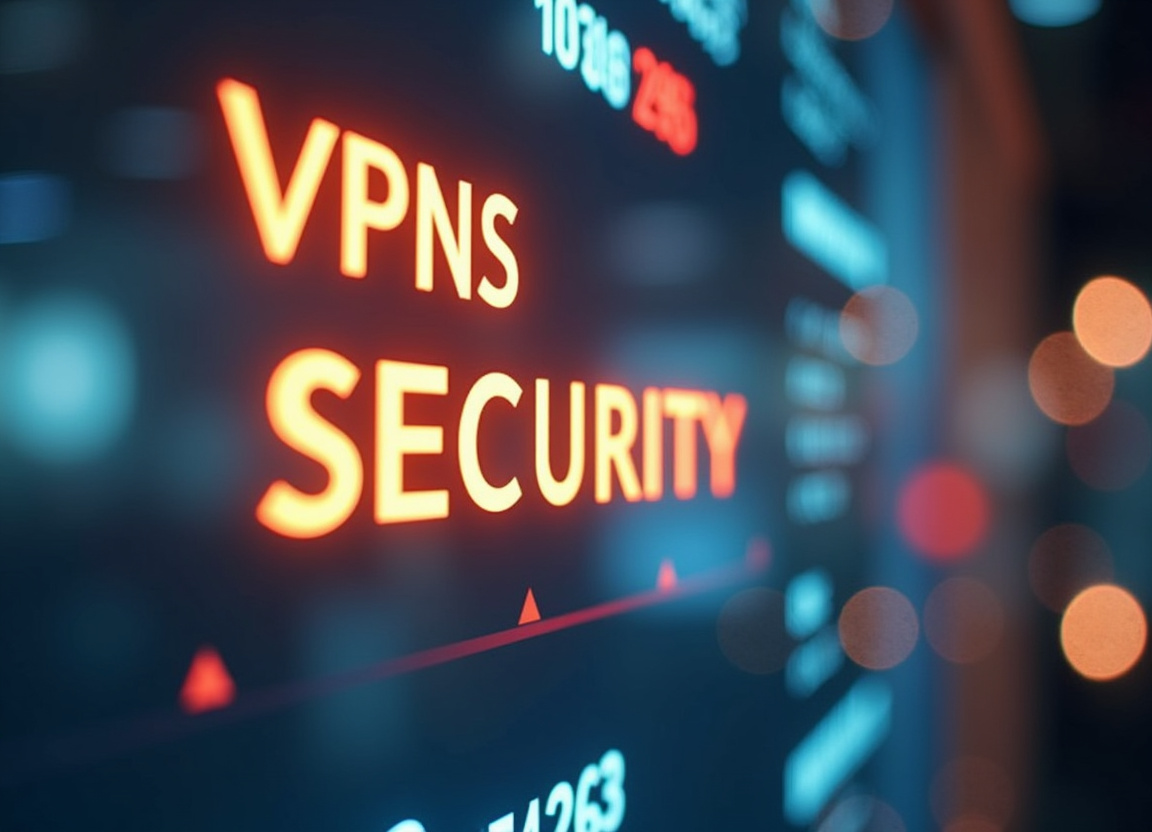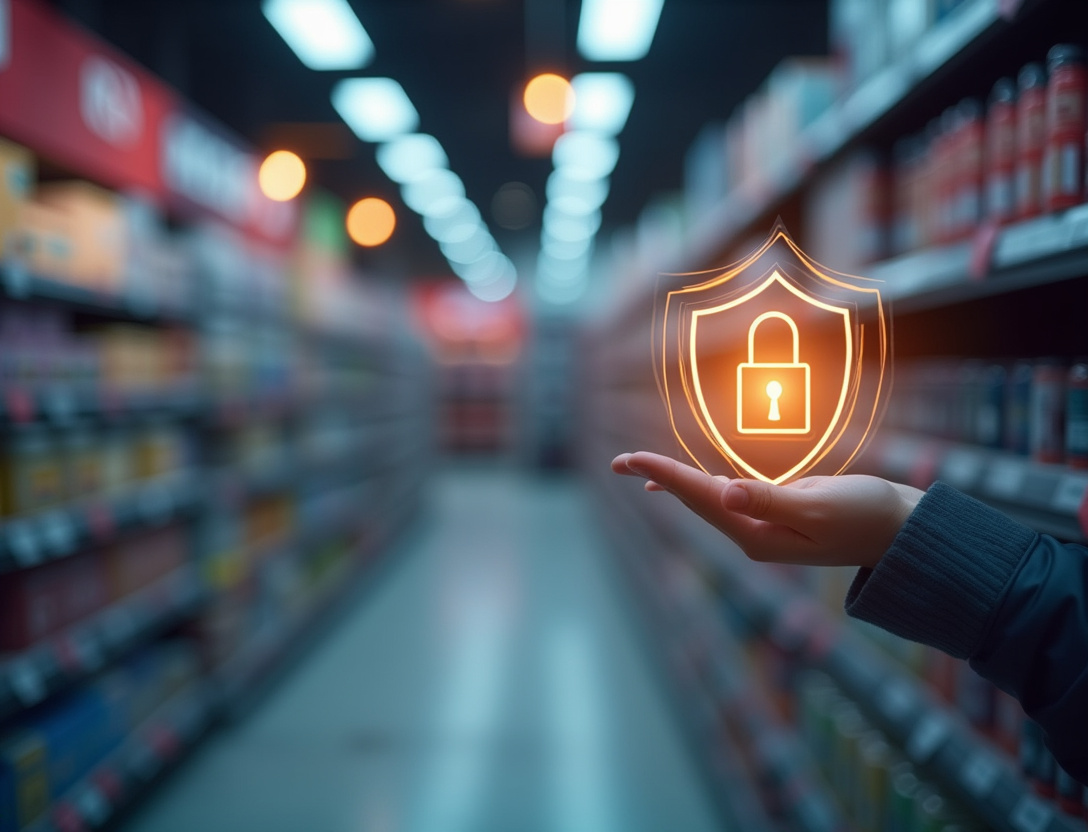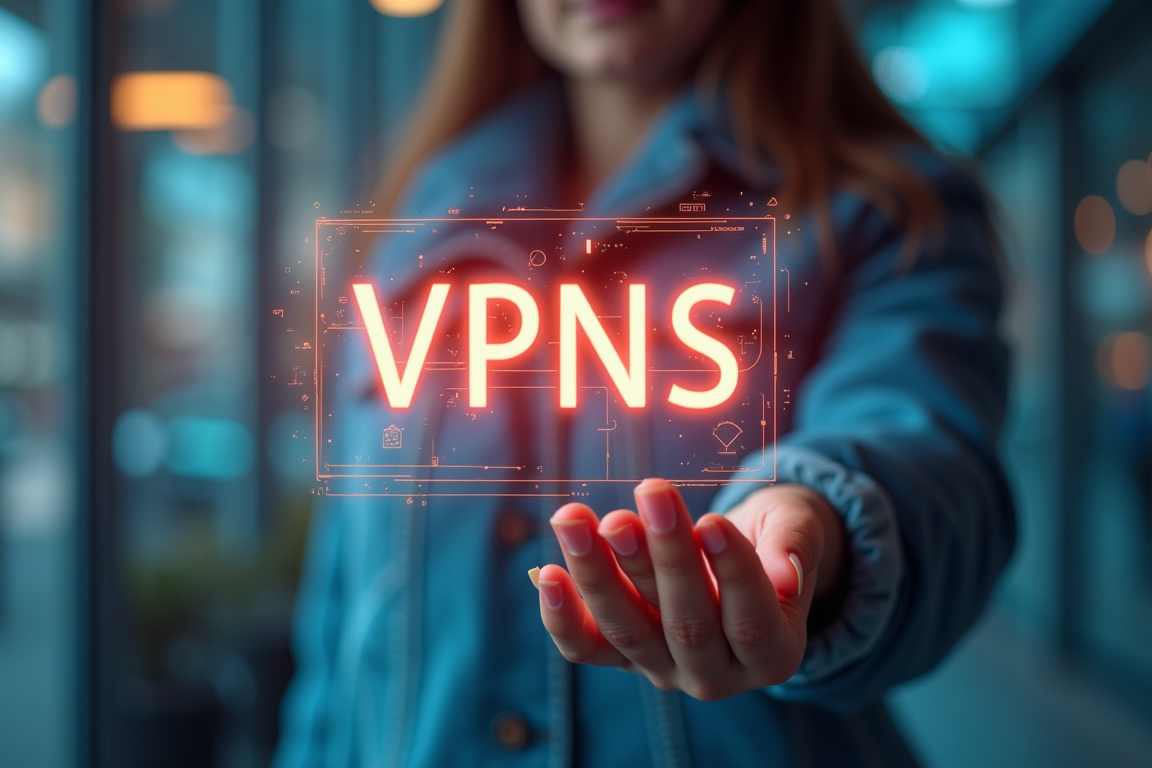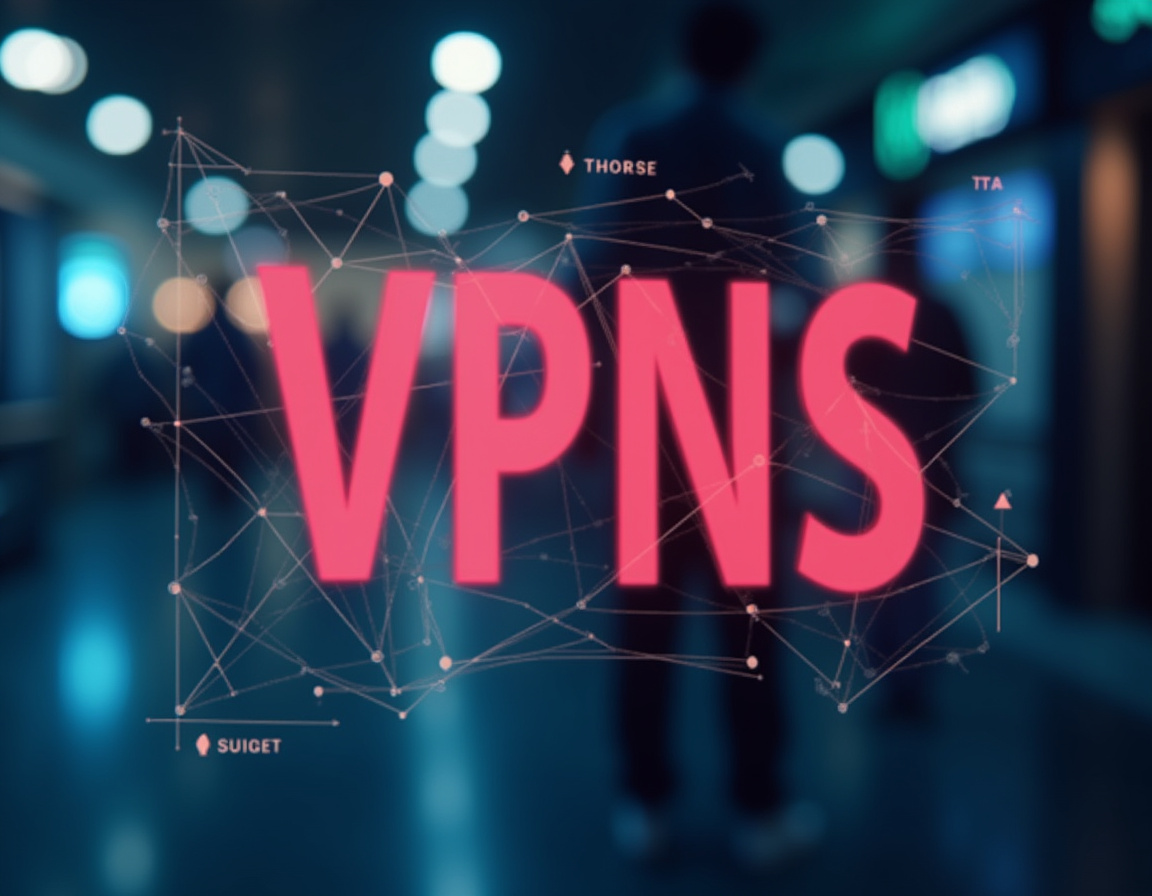VPNs for Retailers: Ensuring Checkout Security

Table of Contents
customer data
In today's dynamic and interconnected digital landscape, retailers are navigating an increasingly complex web of cybersecurity threats that can potentially compromise sensitive , disrupt seamless operations, and erode hard-earned customer trust, impacting brand reputation and long-term sustainability in the market. The modern digital storefront, evolving rapidly from a mere novel addition to traditional brick-and-mortar establishments, is a primary and often the initial point of contact with consumers. This elevation of digital interaction makes the security of online transactions not just a preference but an absolute imperative.
A critical area of vulnerability for retailers lies within the checkout process, where a wealth of valuable financial information and personal details are exchanged between the customer and the vendor. This exchange, the very heart of the e-commerce experience, becomes a prime target for malicious actors seeking to exploit weaknesses in the security infrastructure. Traditional security measures such as standard SSL certificates and robust firewalls, while undeniably necessary foundational components, may not be sufficient in isolation to protect against the increasingly sophisticated and persistent attacks that retailers are facing today.
This is particularly true when retailers are frequently required to rely on less secure public Wi-Fi networks, whether for mobile POS systems, in-store customer service, or remote employee access, or when operating in regions with less stringent internet security regulations and protections. The inherent vulnerabilities of these open networks and regions create significant risk exposure. This is where a Virtual Private Network, or VPN, becomes an indispensable tool for , offering a secure and encrypted tunnel for data transmission and providing a robust defense to bolster overall .
Effectively, a VPN creates an impenetrable, encrypted connection between the retailer's system and the vast expanse of the internet. This connection acts as a protective shield, masking the retailer's true IP address from prying eyes and ensuring the confidentiality and integrity of data by shielding it from potential eavesdropping. The benefits and utility of utilizing a VPN extend far beyond simply protecting potentially vulnerable credit card information during customer transactions.
It provides a more comprehensive safeguard, encompassing a wide range of data flows that are crucial for seamless and reliable retail operations. This includes protecting sensitive customer addresses, detailed and valuable purchase histories, and even the privacy and security of internal communications between employees and management. One of the most crucial and often overlooked aspects of VPN protection is the mitigation of risks associated with unsecured networks, which are increasingly common in modern retail environments.
Retailers who permit or even require employees to access internal critical systems through public Wi-Fi networks, or from remote locations, are inadvertently exposing themselves to significant security risks and potential breaches. Cybercriminals and malicious actors can easily intercept unencrypted data transmitted over these networks, gaining unauthorized access to sensitive customer data or even the keys to the retailer's entire system. A properly configured and maintained VPN ensures that all data transmitted over any network is encrypted using advanced cryptographic algorithms, rendering it unreadable and indecipherable to unauthorized parties.
This enhanced security is particularly important for smaller retailers who may not have the resources to invest in and maintain dedicated, highly secure networks and therefore rely more heavily on readily-available public infrastructure. Furthermore, VPN usage provides significant assistance in enabling retailers to comply with increasingly complex and stringent data privacy regulations such as the General Data Protection Regulation (GDPR) and the California Consumer Privacy Act (CCPA). These regulations place strict requirements on businesses regarding the collection, storage, and protection of customer data.
By encrypting data both while it is actively in transit and while it is at rest (particularly if the VPN server adheres to a strict and verifiable no-logs policy), retailers can definitively demonstrate a commitment to data privacy and dramatically reduce the risk of incurring potentially substantial fines and penalties associated with non-compliance. In summary, VPNs play a crucial and multifaceted role in protecting modern evolving retail operations. They accomplish this by securing the checkout process, encrypting a wide range of sensitive data types, and mitigating common but dangerous risks associated with the use of public Wi-Fi networks.
This comprehensive approach is critical for ensuring compliance with stringent data privacy regulations, safeguarding brand reputation, and enhancing overall security posture within the organization. Moreover, VPNs enhance by ensuring that the encrypted tunnel shields financial details during checkout, leading to more secure and reliable transactions, thereby building customer confidence and loyalty.
VPN for retail
The expansive scope of the benefits conferred by a transcends the mere encryption of individual, isolated transactions. It signifies a fundamental shift towards establishing a comprehensively secure infrastructure designed to protect the entirety of the data flow within a modern and interconnected retail organization. To fully appreciate this, consider the increasingly common scenario of a multi-location retailer operating across several geographical areas.
Each individual store within this network processes numerous transactions daily, diligently manages inventory levels, and regularly transmits sensitive operational data back to a centralized server for analysis and reporting. Without the robust security provided by a VPN, the voluminous data transmitted between these geographically dispersed locations is inherently vulnerable to malicious interception, particularly when the retailer is reliant on potentially less secure regional or third-party internet service providers for connectivity. In stark contrast, a VPN effectively creates a highly secure, private network that seamlessly connects all of these locations, ensuring that every single piece of data transmitted between them is encrypted with advanced cryptographic technology, thus providing comprehensive protection against unauthorized access, data breaches, and potential compromise of sensitive information.
Beyond the geographical expansion of retail operations, VPNs can offer significant and often overlooked advantages for retailers actively engaged in international commerce, where the complexities of cybersecurity are compounded by varying legal and regulatory frameworks. Different countries and jurisdictions possess wildly varying standards of internet security and levels of governmental or corporate surveillance. A strategically implemented VPN can empower retailers to circumvent these potentially restrictive barriers, seamlessly accessing crucial resources and conducting sensitive business operations in a secure and anonymous manner, without fear of undue scrutiny or data compromise.
This enhanced security and privacy are especially critical for retailers handling particularly sensitive customer data originating from diverse regions, each potentially governed by unique and complex data privacy laws. A VPN strategically allows these retailers to maintain consistent compliance with a multitude of differing data privacy regulations while simultaneously upholding a uniform and robust level of security across all of their global operations. Another incredibly crucial aspect of VPN utilization within the retail sector centers on the robust protection of Point-of-Sale, frequently abbreviated as POS, systems.
These POS systems form the very front line of the modern digital economy, being responsible for processing countless sensitive transactions on a daily basis. However, their critical function also makes them a particularly attractive and prime target for cybercriminals, who can deploy or install malicious software designed to steal credit card information, or significantly disrupt essential business operations. A VPN offers a potent layer of defense to protect these vulnerable POS systems by encrypting all of the data transmitted between the POS terminal and the designated payment processors, thus shielding sensitive financial details from interception.
This greatly elevates the difficulty and complexity required for hackers to successfully intercept and illicitly steal valuable customer data. Beyond basic protection, many advanced VPN solutions offer additional security functionalities, such as integrated malware blocking and advanced ad blocking, capable of further enhancing the overall security of the critical POS systems and minimizing the potential for compromise. Imagine a typical retail store experiencing a sudden and unexpected surge in online orders due to the resounding success of a meticulously planned and executed marketing campaign.
Without an adequate and robust level of cybersecurity defense, this influx of heightened traffic could easily overwhelm the system, leading to frustratingly slow response times, system instability, and even a complete and catastrophic system crash. This can very quickly translate into lost sales, dissatisfied and frustrated customers, and significant sustained damage to the retailer's carefully cultivated reputation. However, a reliable VPN, particularly one equipped with a robust and well-maintained server infrastructure, can enable retailers to seamlessly handle these sudden surges in internet traffic by automatically distributing the increased load efficiently across multiple servers and providing a consistently secure and reliable connection capable of withstanding dramatically increased demand.
In effect, the modern VPN provides an indispensable additional layer of operational resilience, guaranteeing that the retailer's critical systems remain online and fully operational, even during challenging periods of peak demand and heightened cyber threat activity. Through its fortified and secured communication channels, the increases as standard, protecting not just customer information but the core functionality of the entire business, and thereby increasing levels of customer trust - a cornerstone of success.
VPNs for Retailers: Ensuring Checkout Security
The effective implementation of a VPN strategy within a retail environment demands careful planning, diligent execution, and thorough consideration of the specific and nuanced needs of the organization, going beyond a simple, one-size-fits-all approach. A crucial initial step in this process is to conduct a comprehensive assessment of the existing security infrastructure and meticulously identify potential vulnerabilities that could expose the retailer to unnecessary cyber risks. This involves a detailed evaluation of the security protocols in place for Wi-Fi networks, the robustness of Point-of-Sale (POS) systems, the integrity of current data transmission protocols, and the effectiveness of existing employee access controls.
By pinpointing specific weaknesses, holes, and potential exploitation points, the retailer can effectively develop a targeted VPN implementation plan that directly addresses and mitigates these identified security gaps, leading to a far more efficient and effective security posture. For example, retailers who find themselves heavily reliant on open and potentially insecure public Wi-Fi networks should absolutely prioritize implementing VPN solutions for all employees who are required to access internal systems remotely, regardless of their position or perceived security risk. Similarly, retailers who process a high volume of online transactions should place a strong emphasis on guaranteeing that all critical POS systems are comprehensively protected by a properly configured and actively managed VPN.
This layered approach to security ensures that the most vulnerable points are fortified first, significantly reducing the overall risk. Another critical consideration in formulating a robust VPN strategy is the careful selection of an appropriate and well-suited VPN protocol. There are a multitude of different VPN protocols available on the market, each offering varying levels of security, speed, performance, and compatibility.
Some of the more popular and widely used protocols include OpenVPN, IKEv2/IPsec, and the newer WireGuard protocol. OpenVPN is generally considered to be a highly secure, stable, and reliable protocol, enjoying widespread support and frequent security audits; however, it can sometimes exhibit slower performance on certain hardware configurations due to its relatively high overhead. IKEv2/IPsec represents another secure and widely adopted protocol which is particularly well-suited for use on mobile devices, given its ability to quickly and automatically reconnect after brief service interruptions or network disruptions, making it ideal for on-the-go retail operations.
WireGuard, on the other hand, is a more recent and modern protocol that has gained significant traction rapidly due to its impressive performance characteristics, excellent security ratings, and relatively simple codebase, making it easier to audit and maintain. Ultimately, the optimal choice of VPN protocol will depend greatly on the specific needs, budget, and technical capabilities of the retailer in question. In addition to the core protocol considerations, it's crucial to carefully consider the geographical location of the VPN server to which the retailer will be connecting.
Connecting to a server located in a
retailer VPN
Beyond the technical considerations of VPN implementation, retailers must also address several critical policy and training aspects to ensure the successful and ongoing effectiveness of their security measures. An essential component of this is the development and enforcement of a comprehensive VPN usage policy that clearly outlines acceptable use guidelines, security protocols, and potential consequences for policy violations. This policy should explicitly state which employees are authorized to use the VPN, the specific purposes for which VPN access is granted, and the types of data that are permitted to be transmitted through the VPN connection.
Furthermore, the policy should clearly define prohibited activities, such as accessing unauthorized resources, sharing VPN credentials, or attempting to circumvent security controls. The policy should also emphasize the importance of maintaining strong passwords, regularly updating software, and avoiding suspicious websites or email attachments. To ensure that all employees are fully aware of and compliant with the VPN usage policy, retailers should provide comprehensive training on VPN security best practices.
This training should cover topics such as the importance of using strong passwords, recognizing phishing scams, avoiding public Wi-Fi networks, and reporting suspected security incidents. The training should also emphasize the potential consequences of violating the VPN usage policy, including disciplinary action, legal liability, and reputational damage. Regular refresher training should be provided to keep employees up-to-date on the latest threats and security best practices.
This ongoing training should cover new attack vectors, emerging vulnerabilities, and evolving security regulations. Another important aspect of VPN security is the implementation of strong authentication mechanisms. Retailers should require all VPN users to authenticate using multi-factor authentication (MFA), which requires users to provide two or more forms of identification, such as a password and a one-time code sent to their mobile device.
MFA significantly reduces the risk of unauthorized access by making it much more difficult for attackers to compromise user accounts, even if they have obtained the user's password. In addition to MFA, retailers should also implement strong password policies that require users to create complex passwords that are difficult to guess, and to change their passwords regularly. Password policies should also prohibit the reuse of previous passwords and the use of easily guessable personal information, such as birthdates or pet names.
Regular monitoring and auditing of VPN usage is essential for detecting and responding to security incidents. Retailers should implement systems to monitor VPN traffic for suspicious activity, such as unusual login attempts, large data transfers, or access to unauthorized resources. Security logs should be reviewed regularly for anomalies and potential security breaches.
Auditing should be conducted periodically to verify that the VPN is properly configured, that security policies are being followed, and that employees are adhering to security best practices. The results of these audits should be documented and used to improve the VPN security posture. By proactively monitoring and auditing VPN usage, retailers can quickly detect and respond to security incidents, mitigating the potential damage from attacks and preventing future breaches.
This continuous cycle of policy, training, authentication, and auditing strengthens the , safeguarding and ensuring long-term .
The Future of VPNs in Subscription Services: Evolution, Integration, and Enhanced Security
Looking ahead, the role of VPNs in retail security is poised to become even more critical as the threat landscape continues to evolve and new technologies emerge. The increasing sophistication of cyberattacks, coupled with the growing reliance on cloud-based services and mobile devices, will necessitate even more robust and adaptable security measures. One key trend to watch is the integration of VPNs with other security technologies, such as Security Information and Event Management (SIEM) systems and intrusion detection and prevention systems (IDPS).
By integrating VPN data with these security platforms, retailers can gain a more comprehensive view of their security posture, identifying potential threats and responding to incidents more effectively. For example, a SIEM system could use VPN logs to detect unusual login patterns or data transfers, triggering an alert for further investigation. Similarly, an IDPS could use VPN data to identify and block malicious traffic attempting to enter the network.
Another important trend is the adoption of Zero Trust security models, which assume that no user or device is inherently trustworthy, regardless of whether they are inside or outside the network perimeter. In a Zero Trust environment, all users and devices must be authenticated and authorized before being granted access to resources. VPNs play a crucial role in enabling Zero Trust security by providing a secure tunnel for accessing resources, regardless of the user's location or device.
By combining VPNs with strong authentication mechanisms, such as multi-factor authentication and device posture assessment, retailers can ensure that only authorized users and devices are granted access to sensitive data and applications. The rise of edge computing is also expected to impact the role of VPNs in retail security. Edge computing involves processing data closer to the source, rather than transmitting it to a central data center.
This can improve performance, reduce latency, and enhance security. However, it also introduces new security challenges, as data is now being processed and stored in a distributed environment. VPNs can help to secure edge computing deployments by providing a secure tunnel for transmitting data between edge devices and central servers.
In addition, VPNs can be used to encrypt data at rest on edge devices, protecting it from unauthorized access. Furthermore, as quantum computing becomes a reality, retailers will need to consider the potential impact on VPN security. Quantum computers have the potential to break many of the encryption algorithms that are currently used to secure VPN connections.
To prepare for this future threat, retailers should begin to explore quantum-resistant encryption algorithms and protocols. These algorithms are designed to be resistant to attacks from both classical and quantum computers. Implementing quantum-resistant encryption will require significant investment and expertise, but it is essential for ensuring the long-term security of VPN connections.
In conclusion, VPNs remain a cornerstone of retail security, providing a critical layer of protection against evolving cyber threats. By integrating VPNs with other security technologies, adopting Zero Trust security
Stay Updated
Get the latest VPN news, tips, and exclusive deals to your inbox.




